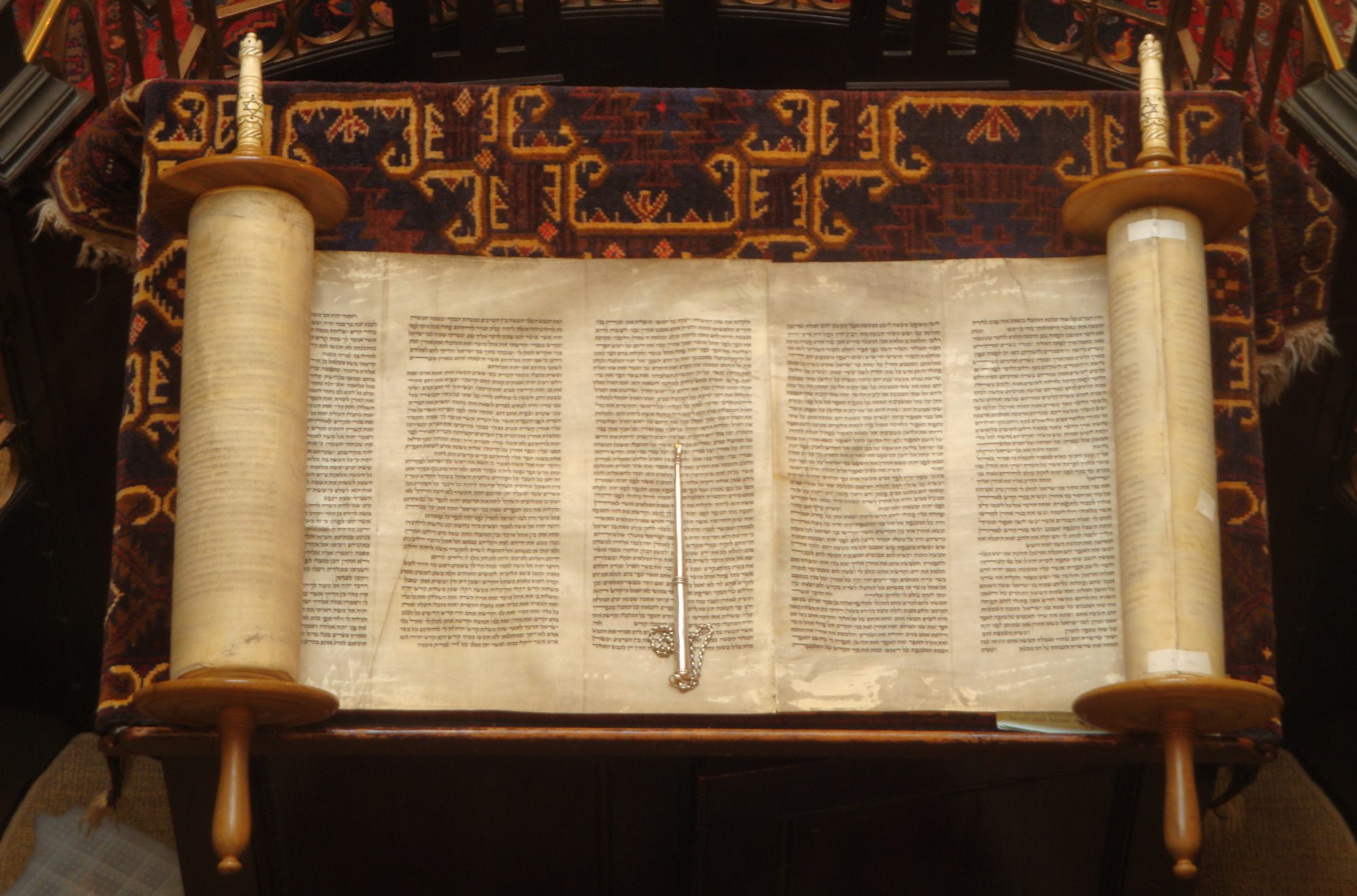
Romans
This letter was probably written about AD 57.
Paul learned while writing the letter that the Roman Christian community had split into two distinct factions.
The Gentile Christians had become the majority and they were not concerned about the writings of the OT or with the demands of the Law of Moses. They even looked down on Jewish Christians.
The Jewish Christians retaliated by insisting on adherence to certain aspects of the Law of Moses.
Paul was placed in a position of addressing both the theological and social division, a schism that had at its heart the question of continuity and discontinuity between Jewish and Christian faith.
Paul divided his letter into 4 major parts –
- 1-4 was about the Heart of the Gospel: Justification by Faith
- 5-8 was about the Assurance Provided by the Gospel: The Hope of Salvation
- 9-11 was about the Defense of the Gospel: The Problem of Israel
- 12-15 was about the Transforming Power of the Gospel: Christian Conduct
Paul further disclosed in his writing of Romans three additional specific purposes:
- To summarize Paul’s theology
- To solicit support for a future mission to Spain
- To bring unity to the church in Rome
Paul was at a crossroads in his ministry at this time. He had presented his ministry to a broad area of the eastern Mediterranean basin and he now believed it was time to move to the far end (western) of the Mediterranean, hence his desire to go to Spain to preach the Good News in a new territory.
Paul probably wrote his letter to the Romans with an underlying purpose of soliciting funds for his travels to Spain to further his ministry. He was also aware of the need to heal the rift between the Gentile Christians and Jewish Christians. He focused a great amount of time on the division of the part the OT played in the Good News teachings.
The Heart of the Good News is the offer of salvation in Christ for all who believe.
Paul explores the problem of human sin, the solution provided in the cross of Christ, and the assurance of glory that a living relationship with Christ provides.
The message of the cross of Christ stands both in continuity with the OT (because its promises are truly fulfilled in Christ) and in discontinuity with it (as God in Christ inaugurates a new covenant that transcends the OT law).
Paul was attempting to make clear that salvation was all inclusive and not exclusive (allowing only Jews to be saved) for all Christians at the time.
Paul shows how the Good News relates salvation through faith to the continuity of God’s people from the OT to the NT and to the relationship of Jews and Gentiles in his own day. His letter has a lot to say about including Gentiles in God’s people and the relationship between Jews and Gentiles in the church.
The book of Romans is about the Good News and how everyone can have a right relationship with God.
Philippians
Paul’s letter to the Philippians was the result of his founding a church in Philippi years earlier along with Timothy, Silas and others, probably during his second missionary travels.
It was also his first church established on European soil, and whose members were predominately gentile and whom Paul had regarded with a special affection and deep longing.
Paul was in prison, but he does not say where. (He was in prison a lot).
The time of the writing can’t be determined precisely since there is no exact reference to where he was imprisoned. It could have been while in Ephesus (AD 53-57) or in Rome (AD 60-62 or AD 64-65). There is sufficient theological belief that it could have been either location or time.
The important theme of the letter is Paul’s writing to them to let them know how they are being persecuted and he has empathy for them.
The Philippian Christians had also been imprisoned and suffering and Paul is relating to them.
They responded by praying for his release and sending one of their own with gives to supply his needs.
Epaphroditus was sent to Paul and subsequently became ill. When he regained his health, Paul sent him back, along with Timothy, to Philippi with this letter.
Paul affirms his gratitude to God for the Philippians and prays for their spiritual growth. He talks about his own experience of imprisonment and the way it has resulted in the spread of the Good News.
Paul’s greatest desire is to live and die for Christ, whatever the situation. He tells the Philippians that they too must be strong in their faith as they suffer for Christ. They should support each other, remembering the example of Christ, who gave up everything in sacrificing his life for theirs.
He warns them of the Jewish Christian propaganda requiring adherence to the Law of Moses. He reminds them of his own conversion from Judaism and the Mosaic Law.
The only important thing now is Christ – knowing his righteousness, sharing in his suffering and death, and experiencing his resurrection power both now and in the future.
Single-mindedness in pursuing the full life in Christ is paramount.
Colossians
There is much disagreement as to the authorship of the book of Colossians.
Some scholars believe it was written after Paul’s death by a follower in the mid to late AD 60s.
Others believe that the letter is part of the “prison letters” written by Paul which include Colossians, Ephesians, Philemon and Philippians, probably in AD 60-62 or shortly before Paul’s death in AD 64-65 in Rome.
All of the letters share the same common themes and vocabulary and were written to people in the same part of the world. Paul mentions some of the same co-workers in each of the prison letters. Onesimus carried the letter to Philemon who lived in Colosse. Onesimus also traveled with the letter to the Colossians.
Paul related in both Colossians and Ephesians that Tychicus would give the churches more information about Paul’s situation. It would seem then, that Tychicus was the messenger carrying the letters to their destinations in Asia Minor.
Paul addressed the false teachers and their teachings strongly. He determined that they were following false teachers:
- The false teachers were apparently insisting on the observance of Sabbath and new moon festivals (suggesting Jewish input)
- They were preoccupied with following various rules, particularly pertaining to the body (asceticism)
- Their emphasis on spiritual beings was typical of many religious movements of the period.
The problem is clear – Jesus Christ was NOT the center and origin of all religious experience; therefore, any teaching or philosophy that fails to do so is not the Good News.
Paul insists that Jesus Christ is supreme over all beings in creation, both spiritual and physical. Jesus is the one in whom the very fullness of God resides.
Jesus is the only ultimate source of spiritual growth; the center from which all true spiritual experience must radiate.
Christ has reconciled us to God in whom we now live, so all of our spiritual needs are fulfilled by Christ.
We need no one else, nor is there anyone else, that will fulfill that need.
Ephesians
The book was written in approximately AD 53-57 while Paul was in prison, possibly in Ephesus.
Other scholars dispute the writing as Paul’s and believe that it was written by a disciple of Paul’s.
Paul spent 2-3 years in Ephesus during his 3rd missionary journey and most likely penned this book during that time. Keep in mind that it could have been written by an early disciple.
Paul stresses God’s Amazing Grace in Ch. 1-3 and Living like Christ in Ch. 4-6.
The thoughts and structure are somewhat different from other Pauline writings, but the concepts are similar in nature to other prison writings of Paul, notably Philippians, Colossians and Philemon.
There is a marked contrast with the known and unquestionable writings of Paul’s letters to Romans, 1st Corinthians, 2nd Corinthians, Galatians, Philippians, 1st Thessalonians and Philemon.
All of these are definitely written by Paul and agreed by upon by essentially all noted scholars.
Ephesians is filled with gratitude for the saving grace God has shown to those who believe in Jesus Christ.
Solely by grace, believers have been chosen, forgiven, called into his family, made his children, promised his eternal blessings, and given the gift of his Holy Spirit to mark them as belonging to him forever.
Salvation is never earned; it is always a gift from God.
Every human being stands guilty and condemned before the eternal judgment of God, who cannot tolerate sin.
Apart from Christ, human beings are by nature driven by sin and subject to the devil, evangelism is an urgent issue in the NT.
God includes Gentiles in his family and this supports the Unity of the Church as being all inclusive and not exclusive.
Ethnic distinctions mean nothing to God and as a result they should mean nothing to God’s people. Believers should respond in humility, grace, and love, without consideration of ethnic differences.
One’s identity is defined by only by one’s faith in God.
Living like Christ means to turn away from the darkness of their former lives and, filled with the Holy Spirit, to live as new people of light, seeking only what is “good and right and true.”
They should express gentleness, kindness, integrity, respect, and love to others.
In relation to God, their lives are to be filled with purity, praise, and thanksgiving.
Believers are to become like Christ and reflect him in all they do and say.
In Christ they have been created to be like God.
Paul stresses respect and love at home.
Wives are to respect their husbands, children are to honor their parents, and slaves are to obey their masters. Husbands are to love their wives, parents are to discipline their children gently, and masters are to be gracious to their slaves.
Believers must use the weapons provided by God to defend themselves against evil. All of the weapons described are defensive weapons, except the short-bladed sword.
Paul doesn’t believe that Christian life centers on spiritual warfare in an aggressive or offensive sense.
1Timothy
Scholars disagree mightily about the authorship and period of when this book was written.
Many believe Paul penned the book while in prison about AD 63.
Other scholars believe that it was written by someone other than Paul between AD 100-120 and used Paul’s name to give more credibility to the writing.
Still other scholars believe that it is Paul’s letter and the scribe liberally inserted his own thoughts into the letter all the while attributing it to Paul.
Nonetheless, Paul addresses specific issues in the book. The book is a passionate and masterful advocacy for the Good News of Jesus Christ, its ongoing progress in the world, and the new life which it creates and promotes.
Paul highlights the following in the book –
- Dealing with False Teachers
- The Responsibility to Act
- Right Conduct in God’s Household
- Right Teaching and Timothy’s Task
- Right Conduct In God’s Household (re-emphasized)
- Dealing with False Teaching (re-emphasized)
Paul’s primary concern in this book was to promote the mission of the church and advance the Good News in the world and promote the will of God.


